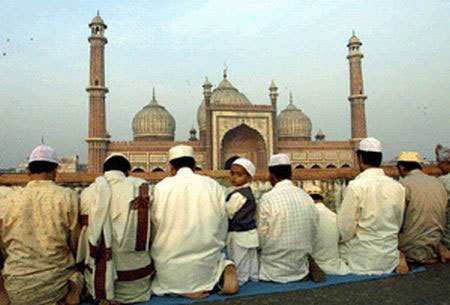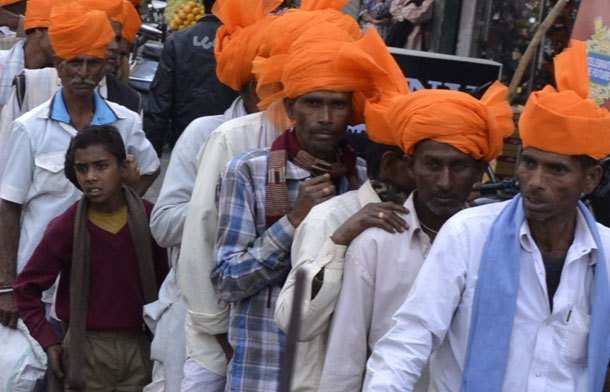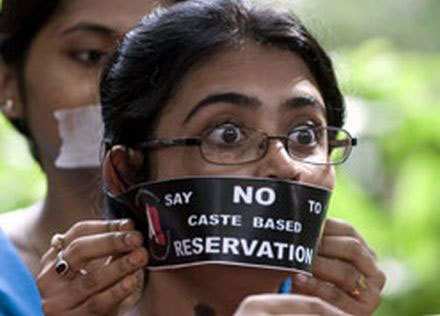Human development and Backwardness in Indian Society
During the run-up to the UP elections there were news, views and articles regarding a political party promising reservation for Muslims ostensibly to impress the Muslim voters. Then there was the usual noise about ‘Muslim appeasement’ and related reactions.

During the run-up to the UP elections there were news, views and articles regarding a political party promising reservation for Muslims ostensibly to impress the Muslim voters. Then there was the usual noise about ‘Muslim appeasement’ and related reactions.
When the election results were declared the whole thing became clear – Muslims no longer are carried away by poll eve noises. Thereafter immediately, we are acquainted with the National Survey figures regarding poverty indices. The survey declared Muslims as the most backward community. This exploded the notion of the so-called ‘Muslim appeasement’ appendix.
Whereas the election results showed the overall maturity of voters, the survey exposed the perpetuity of Muslim backwardness.
What are the causes for this even after sixty years of India becoming an independent nation and despite the alleged policy of Muslim appeasement? A friend posed this question.
There cannot be a simple answer for this question. There are many reasons, both historical and complex contemporary ones. Before one tries to analyze the reasons, it should be borne in mind that when India gained independence on the 15th of August 1947 it had a large portion of its population ‘backward’, which also included Indian Muslims.
Therefore, it is better, first of all, to roughly know what exactly is the meaning or definition of the term ‘backwardness’? Whether this was self-created or imposed? Whether this was national or international in character?
A Nation’s development reflects the status of its process of human development. This, in turn depends on the policies formulated by that Nation state for the development of its populace, mainly its investments in human development and results thereof.
Human development is about building human capabilities- things that they can do and then achieve a status in life; about expanding the choices people have to lead full and meaningful lives and not just the rise or fall of their incomes. In a nut-shell, these capabilities inter-alia include the following:
· To lead healthy and long lives,
· To acquire knowledge,
· To have access to the nation’s resources,
· To earn an income needed for a decent living, and
· To participate in nation building.
On a practical level, aspects such as equity, sustainability and empowerment are basic and necessary requisites for building these capabilities. These, in turn could be provided by a just system operating from top to bottom.
A just state of any type, democratic or otherwise, will formulate and implement policies in such a fashion that the process of this capacity building be available to each and every section of the society and should not result in imbalance.
In the history of the world, India included, it has been evident that people have been deprived of equal opportunities and discriminated against on the basis of nationality, race, ethnicity, colour, culture, gender, religion and language.
With the advent of renaissance and expansion of knowledge, people started demanding their rights, while concepts like equity and human rights became essential elements of human thought. The UN Charter of Human Rights, post-World War II, amply proves this.
Consequently, to alleviate historical wrongs, the doctrine of ‘affirmative action’ was adopted by many countries of the world with an intention to promote equal opportunity. The justification for affirmative action is that it helps compensate for past discrimination, persecution or exploitation by the ruling class of a culture, and to address existing discrimination.

In post-Independence India, its own ‘Affirmative Action’ for the historically deprived section of its society took the shape of Reservations for the Scheduled Casts and Scheduled Tribes (SCs/STs) in Government services and educational institutions by making provisions in the Indian Constitution to this effect in the first place. It is important to note that the Constitution does not permit reservations on the basis of religion.
However, other than the SCs and STs, there were many other castes and classes in Indian society who deserved ‘affirmative actions’ for their elevation.
Realizing this, the Government of India took initiatives for providing reservation to the backward classes immediately after the commencement of the Constitution and the first Backward Classes Commission, also known as Kaka Kalelkar Commission, was constituted in 1953.
The commission submitted its report in 1955. The Central Government did not accept its recommendations because the caste-based reservations were considered a retrograde step at that time!
In 1979, the second Backward Classes Commission, popularly known as “Mandal Commission”, was constituted to investigate the conditions of socially and educationally backward classes; to determine the criteria for defining the socially and educationally backward classes and to examine the desirability or otherwise of making provision for the reservation in favor of
such backward classes. Mandal Commission estimated the population of the other backward classes (OBCs) at 52 per cent of the total population.

The commission submitted its report to the government on December 31, 1980. However, no action was taken for a decade and its recommendations were implemented by the Government of India in August 1990, providing a reservation of 27 per cent in the vacancies for civil posts and services under the central government filled through direct recruitment for socially and educationally backward classes with effect from August 1990.
The reservation rule also applies to Public Sector Undertakings, Financial Institutions (including Banks), Autonomous bodies, Statutory and semi-Government bodies and Voluntary agencies receiving grants from the government. However, unlike for SCs and STs, reservations for OBCs in promotion criteria have not been provided.
In order to give a thrust to the implementation of these policies the central government has developed administrative mechanisms for regulating, monitoring and implementing the reservation policy and other programs.
Despite all these paraphernalia, the reservation policy opened doors for social unrest and demands for ‘quota’ kept on surfacing. The politics of ‘vote bank’ made matters worse. The Honorable Supreme Court of India capped the ‘total reservation’ to 50%. In many states, however, the reservation exceeded this limit and this has resulted in compounding the problem, rather than solving any.
On the eve of independence, India was a poor country. It then progressed to become a developing country and now has been graded as a fast developing country and is a member of ‘BRICS’- a group consisting of fast growing large economies namely Brazil, Russia, India, China and South Africa. Generally speaking the grading reflects economic growth and consequently, capacity to generate wealth.
There is no doubt India has made commendable progress but the gap between ‘the haves’ and ‘have-nots’ has also increased, Planning Commissions figures not withstanding!
It is thus evident that the policy of reservation has not helped the process of either ‘Nation building’ or even human development. Each and every community feels that it has been cheated. Muslims must ponder over this development mainly because ‘Muslim ummah’ is also not a homogeneous entity and has any number of sects and sub sects within it.
All this has happened because firstly, there are no firm criteria for either defining backwardness or for its classification/categorization.
Secondly there is absence of National consensus and thirdly a perception is gaining ground that the quota system has resulted in creating yet another class which takes away the cream – the so-called ‘creamy layer’ within the beneficiaries of quota system thereby making divisions within the beneficiaries of these quotas.
The Muslims too are not an exception. On the basis of their being Muslims many have developed vested interests.
The discussion has so far covered governmental efforts towards affirmative action in the case of SCs, STs and the OBCs. The Central Government had also taken similar initiatives in respect of religious and linguistic minorities in the country. This will be discussed separately and that will hopefully provide some sort of an answer to the question raised regarding perpetual backwardness of Indian Muslims.
To join us on Facebook Click Here and Subscribe to UdaipurTimes Broadcast channels on GoogleNews | Telegram | Signal


